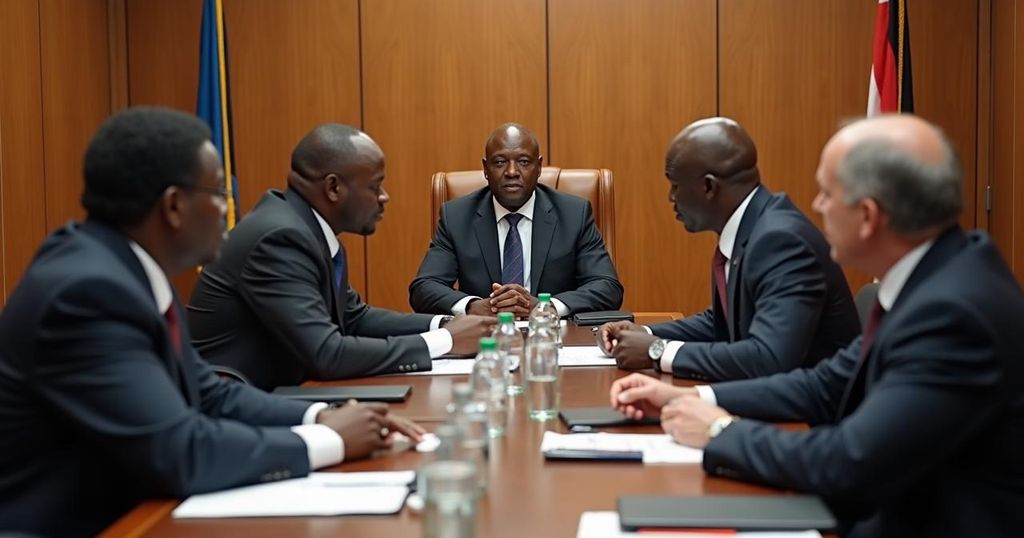CEPO Calls on South Sudan’s Presidency to Commit to R-ARCSS Implementation for Future Elections
The CEPO urges the South Sudanese Presidency to actively implement the Revitalized Agreement on the Resolution of the Conflict to facilitate credible elections in December 2026. Edmund Yakani highlights the need for timely funding and regular meetings, expressing concerns over personal interests hindering progress. CEPO plans to monitor governmental actions during the extended transitional period, amidst growing frustration from international observers regarding political leadership.
The Community Empowerment for Progress Organization (CEPO) has called upon the Presidency of South Sudan to facilitate the effective execution of the outstanding tasks outlined in the Revitalized Agreement on the Resolution of the Conflict in the Republic of South Sudan (R-ARCSS). Edmund Yakani, the Executive Director of CEPO, expressed to Radio Tamazuj the necessity for the Presidency to ensure timely and adequate funding for the mechanisms established under the R-ARCSS, particularly as the transitional government extends its mandate over the next two years. Yakani emphasized that should the Presidency maintain its previous performance over the last six years, the likelihood of conducting credible and peaceful elections in December 2026 would be significantly diminished. He remarked, “The Presidency needs to seriously undertake its primary responsibility and duty of holding regular meetings for aiding the genuine implementation of the pending tasks of R-ARCSS in the extended transitional period.” Furthermore, Yakani raised concerns regarding the influence of self-serving individuals within the Presidency, whom he believes are obstructing the progress of important chapters within the R-ARCSS. CEPO has declared its intention to monitor the actions of the Presidency during the forthcoming two-year transitional period, specifically identifying governmental leaders resistant to fulfilling their obligations under the R-ARCSS. The planned General Election in South Sudan has been rescheduled from December of this year to December 2026 due to insufficient preparedness. International observers have increasingly expressed frustration with the political leadership of South Sudan, notably the protracted discord between President Salva Kiir and First Vice President Riek Machar, which continues to hinder advancements towards the general elections.
The Revitalized Agreement on the Resolution of the Conflict in the Republic of South Sudan (R-ARCSS) was established to address ongoing issues of conflict and political transition in South Sudan. As the country approaches its first general election, the delays and challenges facing the government have raised concerns among both national and international observers. The political landscape is marked by persistent disagreements between the key leaders, which complicates the execution of agreed-upon reforms and electoral preparations. The two-year extension of the transitional government presents both an opportunity and a challenge to fulfill the commitments mandated by the R-ARCSS.
In conclusion, the CEPO’s call for the Presidency to take decisive action in implementing the R-ARCSS is critical for ensuring the political stability and democratic progress of South Sudan. The commitment to transparent governance and meeting electoral deadlines is essential, particularly as the country prepares for elections that have been long awaited. The performance of the Presidency in the coming years will play a pivotal role in shaping the future of South Sudan, especially amidst ongoing international scrutiny and the pressing need for reform.
Original Source: www.radiotamazuj.org




Post Comment